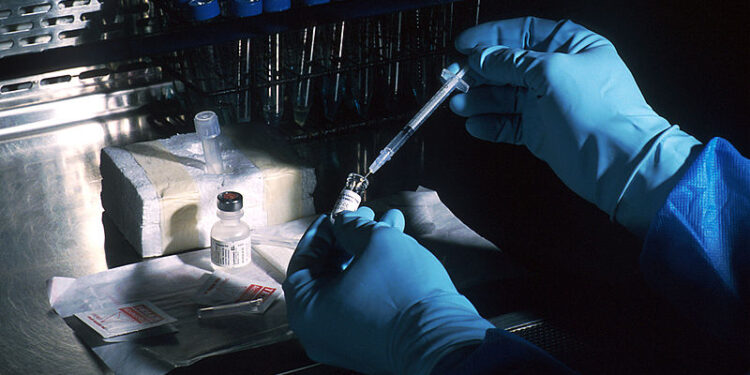Brussels – Prevention through vaccination. The European Union dictates the legal and policy line to combat serious diseases that can be nipped in the bud through readily available and easily administered drugs. The Council of the EU approves the Commission’s recommendation to combat vaccine-preventable cancers by strengthening treatments, in particular, against human papillomavirus (HPV) and hepatitis B virus (HBV).
The health ministers of the twenty-seven countries meeting in Luxembourg are giving the green light to the decision, which is intended to mark a change of pace and a break with what has been recorded so far. “A high percentage of cancer cases are preventable,” highlights Frank Vandenbroucke, Deputy Prime Minister and Minister of Health of Belgium, country holding the rotating presidency of the EU Council. The numbers are those of the OECD, according to which about 40 per cent of cancer cases are the result of environmental factors. These factors include infection with oncoviruses such as HPV and HBV. Vaccination against these viruses, says the Belgian presidency, “can considerably reduce the risk of a person developing cancers related to these viruses.”
The recommendation adopted in Luxembourg thus aims to support member states in increasing vaccination rates and improving monitoring of vaccination coverage. Three goals are set in particular. The first is to increase efforts to fully vaccinate at least 90 per cent of girls against HPV at the EU level by 2030; the second is to significantly increase the vaccination of boys against HPV over the same period so as to reduce the risk of transmission. Finally, governments are urged to do more to have a 95 per cent HBV vaccination coverage for children and infants, a 95 per cent screening rate for pregnant women, and improve monitoring of progress toward these goals. Free access to cancer serums and a better information and awareness campaign are key recommendations for EU member countries to translate the recommendation into practice.
Health Commissioner Stella Kyrikides rejoices and is ready to “thank the member states for approving the recommendation today.” Today’s vote, she stresses, “represents another important step forward in our fight against cancer,” when considering that “more than 16 thousand new hepatitis B infections are reported in the EU each year.“ Preventive vaccination is therefore “a historic opportunity to eliminate cervical cancer and other cancers caused by these viruses.”
On the day the EU marks a major step forward on preventive and health policies, however, there are disagreements over pharmaceutical sector reform. Italy, Denmark, and Sweden signed a document challenging the structure of the EU legislative proposals on the subject, criticising, in particular, the elimination of incentives for innovative drug development.
DK minister @sophieloehde at #EPSCO today. Important discussion of the future EU pharma package. Crucial to strengthen EU’s strategic autonomy by reinforcing the European pharmaceutical industry’s capacity to develop and provide new medicines for all Europeans. non-paper pic.twitter.com/w2ov7B4QKF
— Denmark in the EU (@DKinEU) June 21, 2024
It is feared that the approach as it stands eliminates predictability and market certainty, producing a shift away from investment in an industry seen as critical to ensuring the health of European citizens. The three countries also object to excessive bureaucratic-administrative red tape for companies in this sector and call for corrections in this regard for the good of the industry and public health.
English version by the Translation Service of Withub






![La vicepresidente della Bei, Gelsomina Vigliotti. L'organismo vuole diventare la banca per il clima dell'Ue, dice a HGE9 [Roma, 30 novembre 2022]](https://www.eunews.it/wp-content/uploads/2022/11/vigliotti.png)